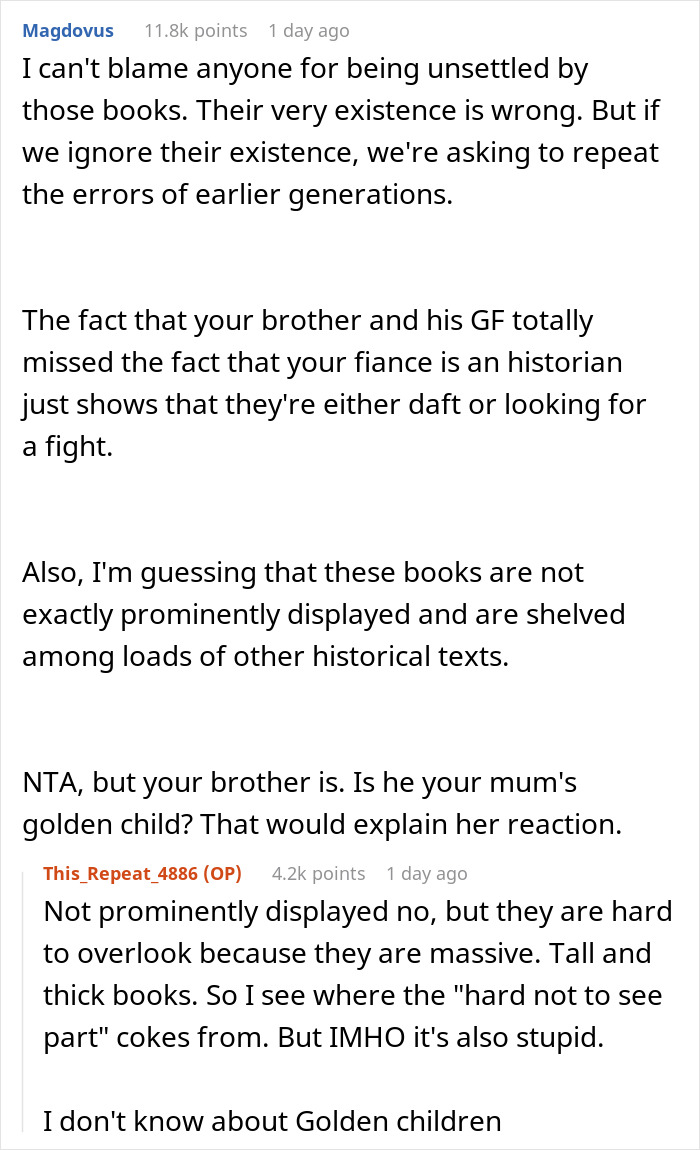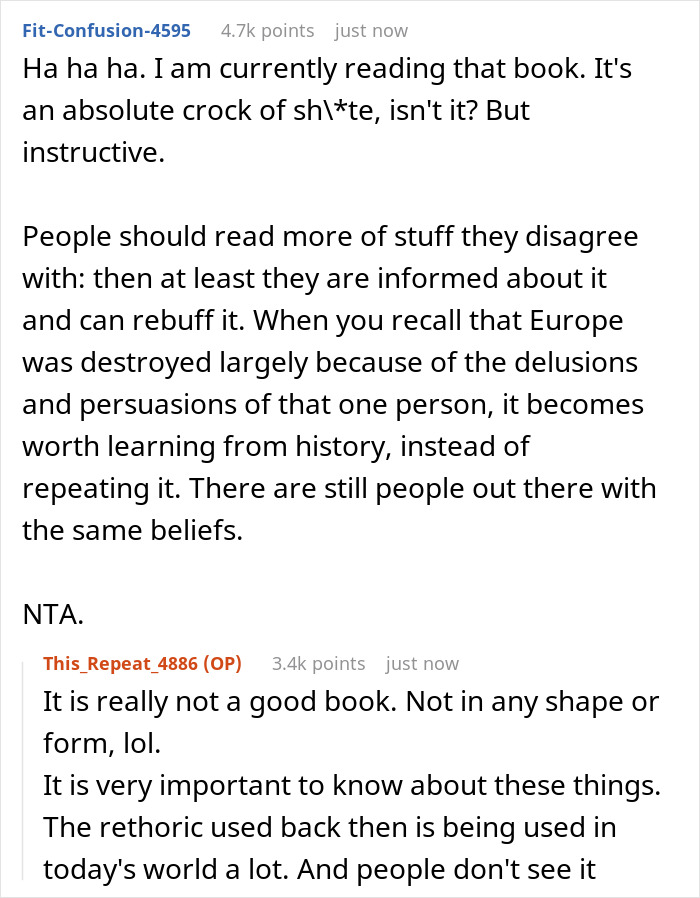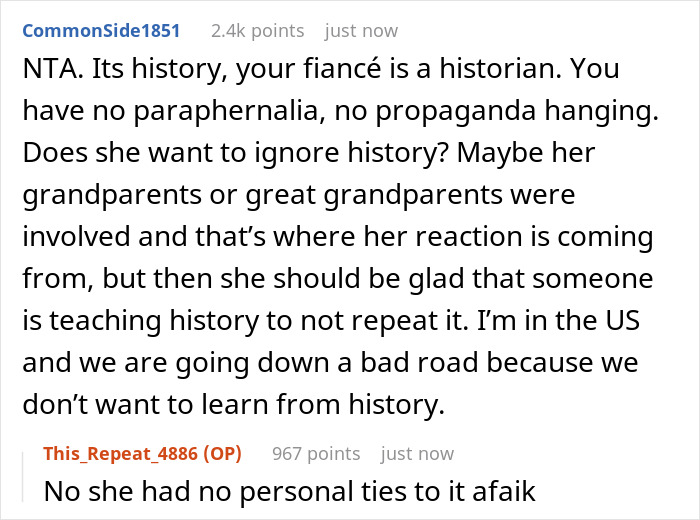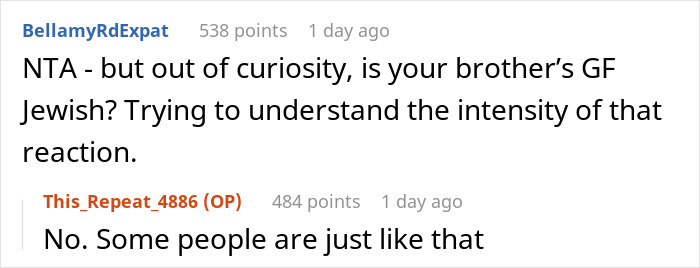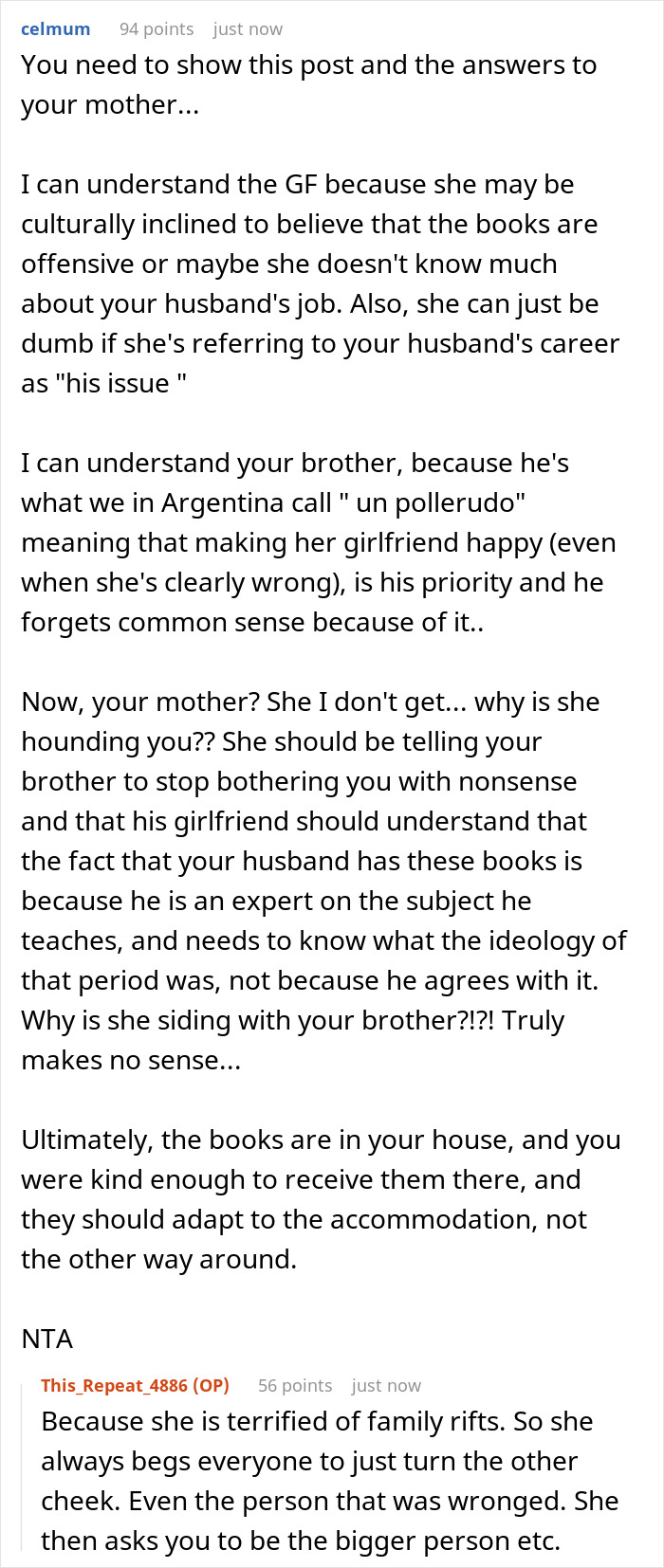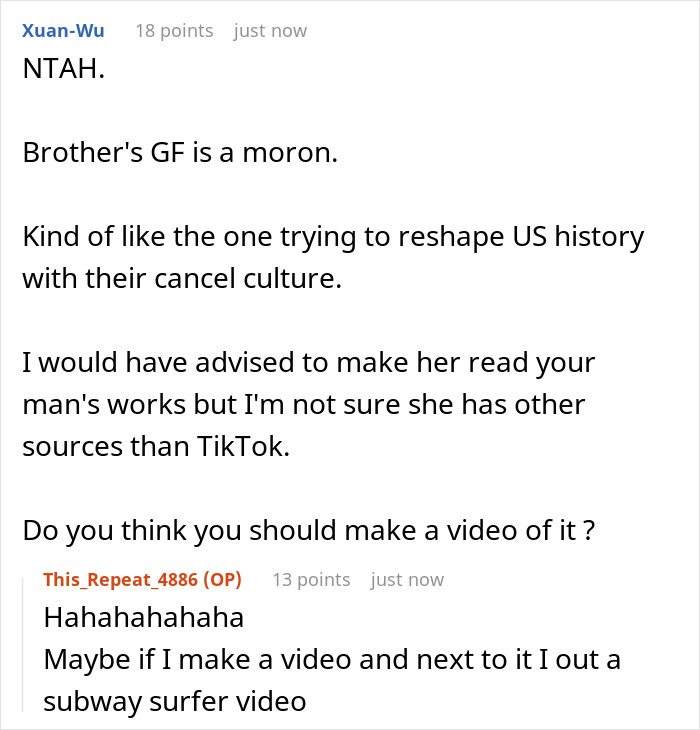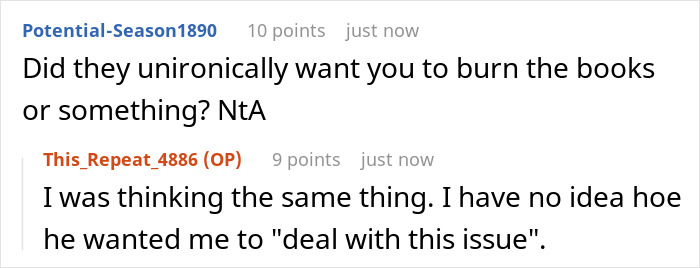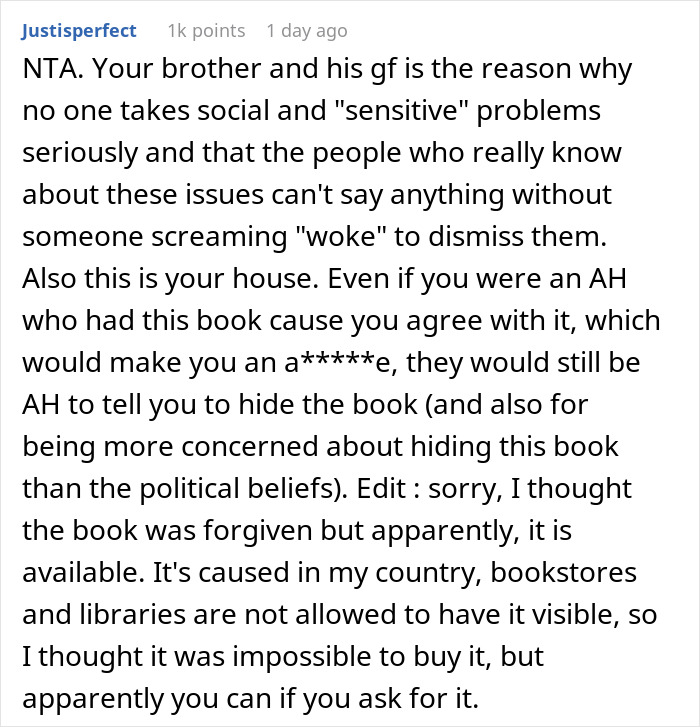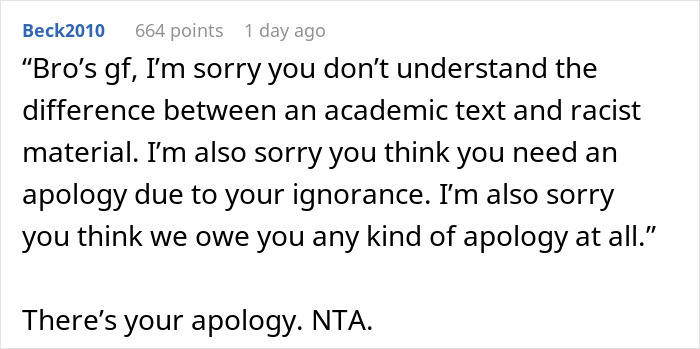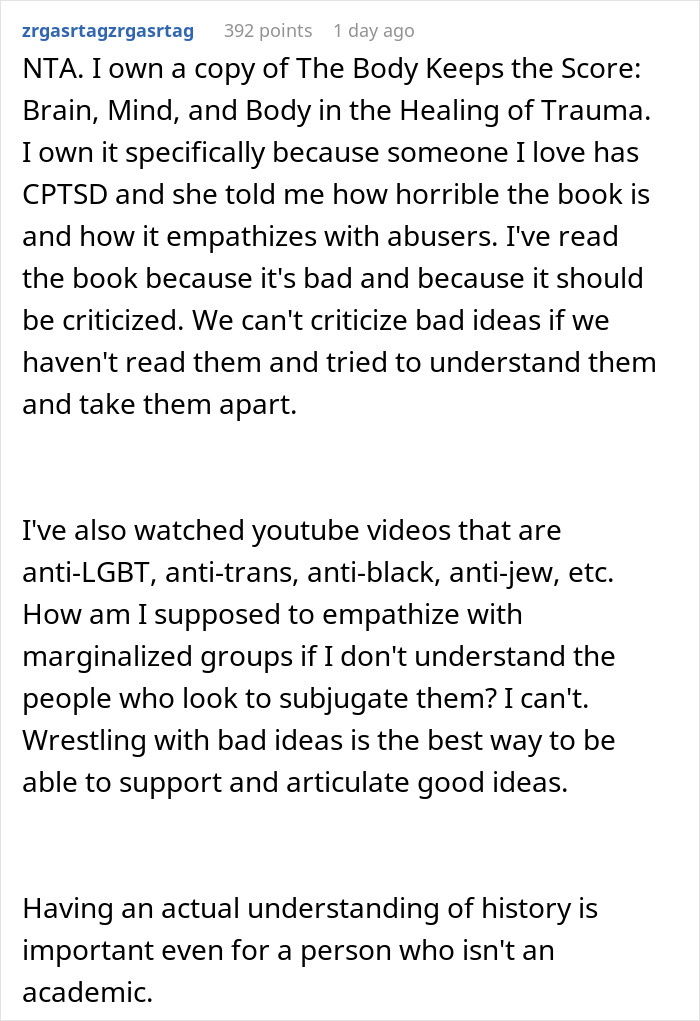The past can help guide the present by showing us the error of our ways. That’s why the study of history is a never-ending process. Historians work hard to improve our understanding of the past by critically examining old texts. But many people feel that certain sensitive historical texts just shouldn’t exist. Suppressing the past might seem like a good way to protect people, but it can have the opposite effect. If we don’t experience history as a whole, how will we ever learn from it?
A woman faced this exact problem when her brother’s girlfriend objected to sensitive historical books that she had in her house. She took to Reddit to explain what happened and to find out if she was the jerk for the way she handled the situation.
Bored Panda also interviewed Professor Edgar Jones from King’s College London to get his insights on owning and displaying such sensitive historical texts.
More info: Reddit
A woman was faced with a dilemma and forced to apologize when her future SIL took offense to her fiancé’s historical books

Image credits: Thomas Kelley (not the actual photo)
The poster’s fiancé is a historian who has many historical texts at home, including a book written by a dictator, which is highly annotated for historical study and critique
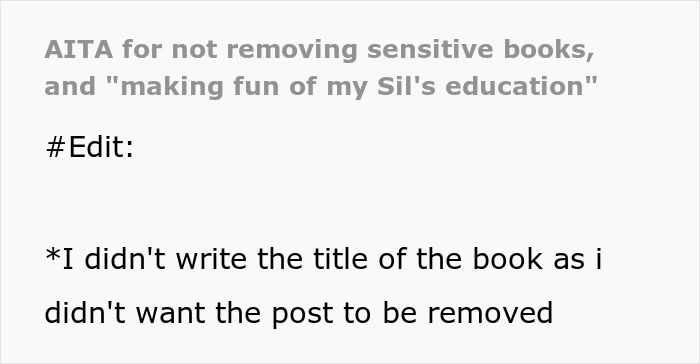
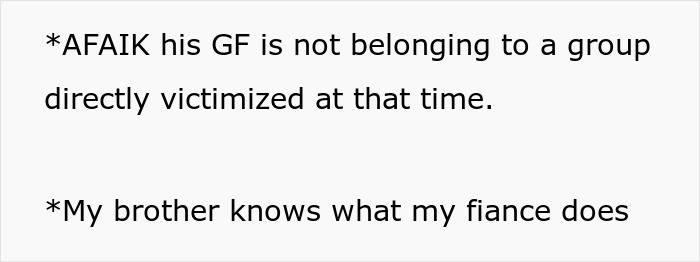


Image credits: Dziana Hasanbekava (not the actual photo)
One day, the woman invited her brother and his girlfriend to her house, they stayed overnight, but the next day the GF was in a horrible mood and couldn’t wait to leave
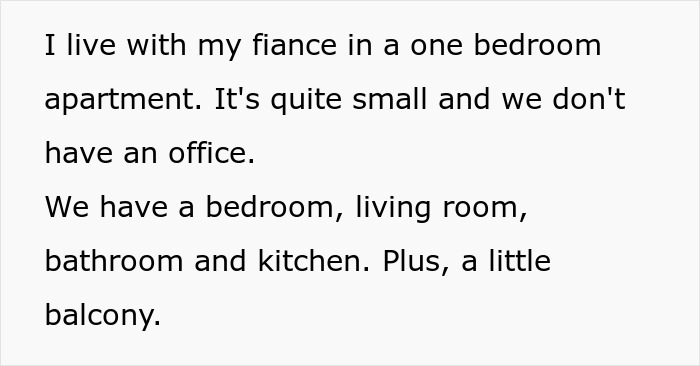

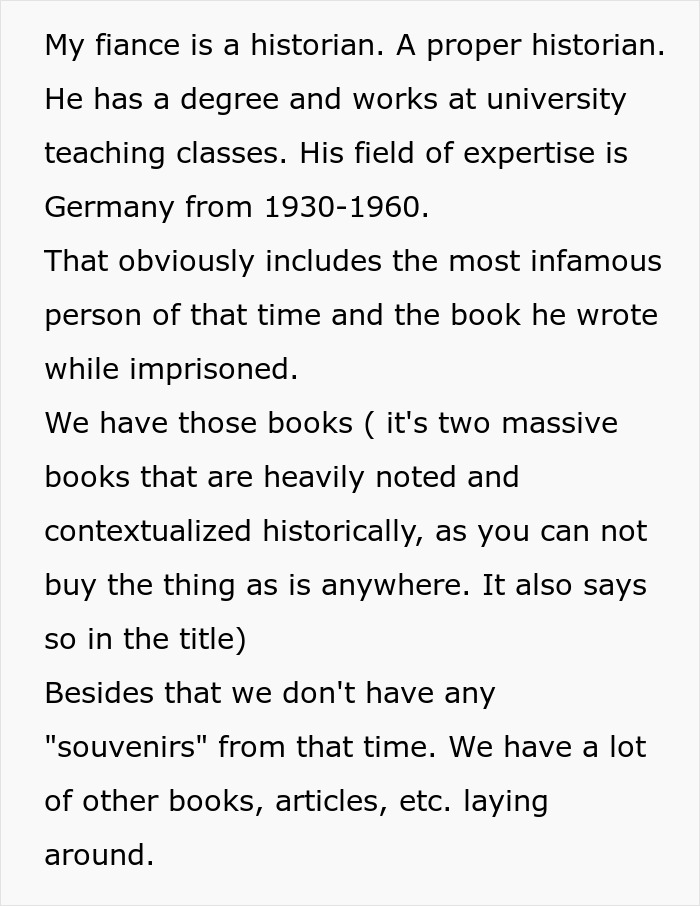
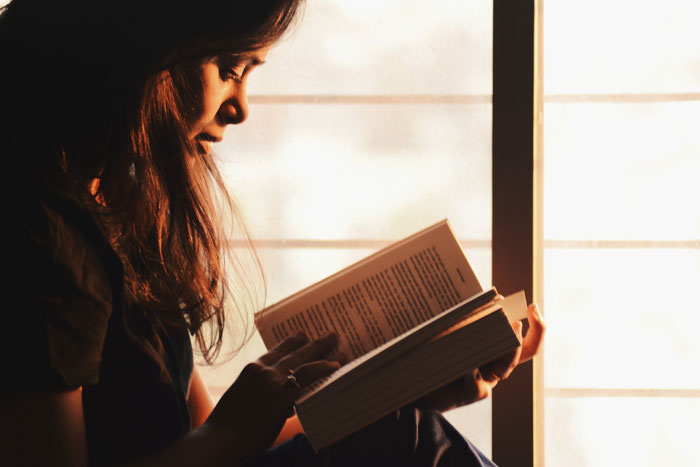
Image credits: Rahul Shah (not the actual photo)
The woman’s brother later confronted her for having “highly inappropriate” books at home and said that “those books don’t belong in a household” after his girlfriend got offended
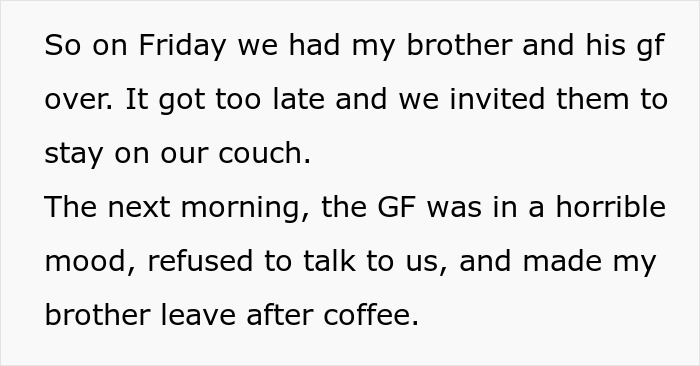
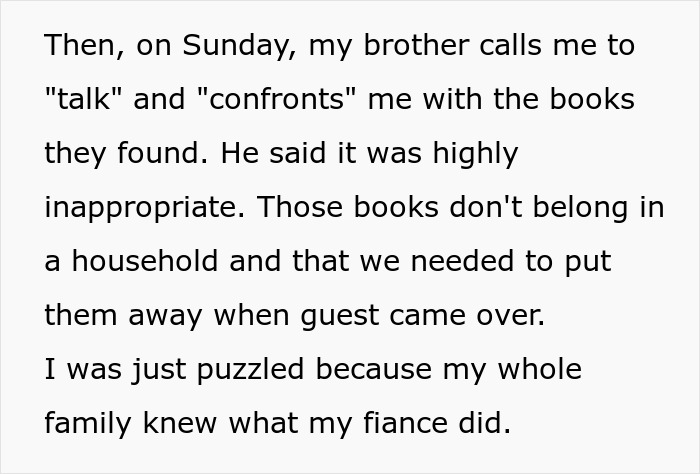


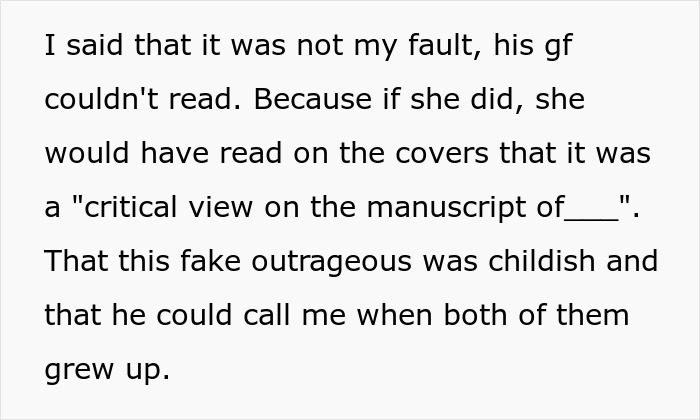
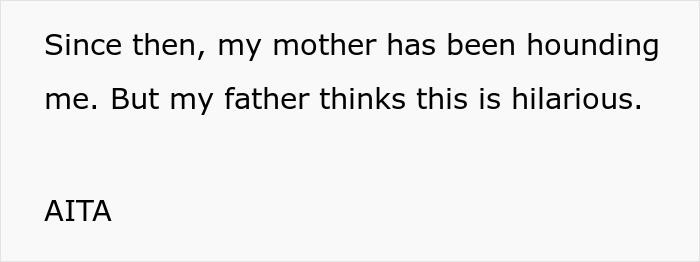
Image credits: u/This_Repeat_4886
The woman was angry when her brother asked her to apologize, and she called both him and his girlfriend “uneducated,” saying that the book was only a critical view of the sensitive manuscript
The author’s fiancé is a historian who owns many historical books and texts that help him learn about the past. Books that critically examine sensitive texts help us see different perspectives so that we understand the mentality of both the oppressors and the oppressed. When asked how they came to own that particular book, the woman mentioned, “It was given out by the governmental agency when getting married as a ‘Gift’. It was a special edition and all. I mean, overall, it was a compulsory lecture [at] that time.”
But the woman was asked to apologize to her SIL for owning such “inappropriate” books. Her mother kept hounding her to speak to her brother’s girlfriend, while her father found the situation hilarious. The author shared her perspective, saying, “My fiance burns for this topic. He would have LOVED to explain to her and to talk to her about why it makes her so uncomfortable. But calling me and demanding s**t is where I am not okay with things.”
The brother’s girlfriend was upset when she came across the books and found it wrong for people to own them. Professor Edgar Jones, who we interviewed, mentioned, “The critical edition of [this book] was an attempt by scholars to provide context for this radical text so that [the dictator’s] rise to power could be analyzed. We need to understand the roots of genocide to identify patterns that provide warnings for current socio-political situations. Knowledge can protect as well as be used for extreme ends. Because the text continues to inspire [some] groups and could be a source of trauma for a survivor, I would not display the book at home. [The book] is a historical source and therefore belongs in an archive or research institute.”
Historians are also supposed to honor the integrity of the historical record. They shouldn’t fabricate evidence or seek to change the past in any form. Each old text provides context for events and shines a light on the choices and decisions that were made by people before us. The American Historical Association shared this about the standards of conduct of historians, “We honor the historical record but understand that its interpretation constantly evolves as historians analyze primary documents in light of the ever-expanding body of secondary literature that places those documents in a larger context.” That’s why the woman kept mentioning that her fiancé is a historian and that it was his job to own and learn from these sensitive books.
Critically examining the past doesn’t have to be a traumatic experience; it can be enlightening. If it isn’t done, there will always be questions and a fear of the unknown. The practice of history is a defiance against forgetting the things that happened to people across the world. That’s why censorship can be so dangerous.

Image credits: Dmitrij Paskevic (not the actual photo)
One of the most recent examples of historical censorship is book banning, which is happening across the world in schools and colleges. There are many reasons for this kind of extreme action, but the idea behind it is that sensitive historical texts shouldn’t be taught to students. Just like the future SIL’s objection about the books being inappropriate, many old texts are treated as harmful.
The Ursidae Journal says this about censorship: “Liberal and conservative groups attempt to control education and what students learn by means of infiltrating the textbook publishing industry and running amuck censoring that with which they disagree. Because of teachers’ high dependence upon textbooks, these educational materials become the source of much controversy surrounding attempts to conform history to a certain set of ideals.” Controlling or banning historical books does more harm than good. It doesn’t teach students about the dangers of the past, and it certainly doesn’t help them learn from the mistakes of previous generations. Being sensitive to social issues involves holding up a lens to such texts and critically examining what they are saying.
That’s why historians add footnotes to many old texts when they are reprinted and even contradict extremist sentiments. This is what the poster had to say about the books, “It had over 3500 annotations. It is not just the book. It is a scientific piece necessary for my fiances work. If it makes people uncomfortable, that’s amazing. It’s not work that should be aspired.” She also said, “Germany takes everything surrounding that time very seriously, and nothing is allowed without contextualization. The book is not banned. It is not free to buy in its original form, tho. You can buy it in its more ‘scientific’ form.”
The woman’s post received 10k upvotes and had 1.7k comments discussing the importance of historical texts. Commenters also agreed that the woman was not a jerk for standing up for herself. How do you feel about people owing “sensitive books” like this and keeping them at home? Let us know in the comments if you have a different point of view.
Commenters sided with the woman and backed her up, saying, “people should read more of stuff they disagree with”
